Improving the rights to education for girls and child survivors of sexual violence
According to the UN Refugee Agency, there are an estimated 5.5 million displaced people living in the Democratic Republic of Congo (DRC), a country with a population of about 100 million. The eastern DRC has been plagued by over 20 years of conflict. This has been severe, particularly in the provinces of North Kivu and South Kivu. There are over 120 armed groups operating in the east of the DRC. Tensions and frequent clashes have led to an acute humanitarian crisis in the region, putting girls, boys and their families at risk, as well as creating a need for improving the rights to education for girls and child survivors of sexual violence. Some displaced communities are left sleeping outside while others are in camps and settlements, often in overcrowded conditions and lacking basic sanitation.
These conditions make it difficult, if not impossible, for children to thrive. In this challenging context, girls throughout DRC are at grave risk of not realizing their right to education and learning.
Families, schools and teachers are fighting against a lack of materials and school supplies, teacher workload, lack of clean water, safe washing facilities, and poverty. Schools are often not responsive to the needs of sexual and gender-based violence survivors and girls.
Save the Children developed the Ni Someshe! project (funded by Global Affairs Canada) to support girls and boys in eastern DRC to access their right to education, and to feel safe and secure at school and in their communities.
After almost 3 years of implementation, here are some of the success stories of the Ni Someshe! project.
Educating teachers to better serve their community.
At a Ni Someshe! Project supported school in Uvira, Roger Byamungu* is the Headmaster. This busy school with 478 students has had its challenges and needed to make changes to be able to provide a safe learning environment for its students.
“There was a lot of abuse,” Headmaster Roger said, reflecting on how the school used to be run. In the past, students had been brought to the hospital for the injuries they sustained at the hands of their teachers. “Teachers didn’t acknowledge that children were any different than an animal,” Roger said. Teachers, often overwhelmed by large class sizes and lack of training, needed help – and resources to learn how to respect children as human beings.
Save the Children and the Ni Someshe! project provided sensitivity training for teachers, parents and students. Since then, things have dramatically changed.

Students can leave feedback for the headmaster and teachers in a suggestion box. This anonymous tool helps students feel safe to speak of things that are good or bad, or what they like and don’t like at school. This small tool has helped teachers and parents change for the betterment of the students.
The Ni Someshe! project also added a fence around the school for safety, and provided handwashing tools, notebooks, and backpacks. The project has also supported increased registration to allow more children to attend school.
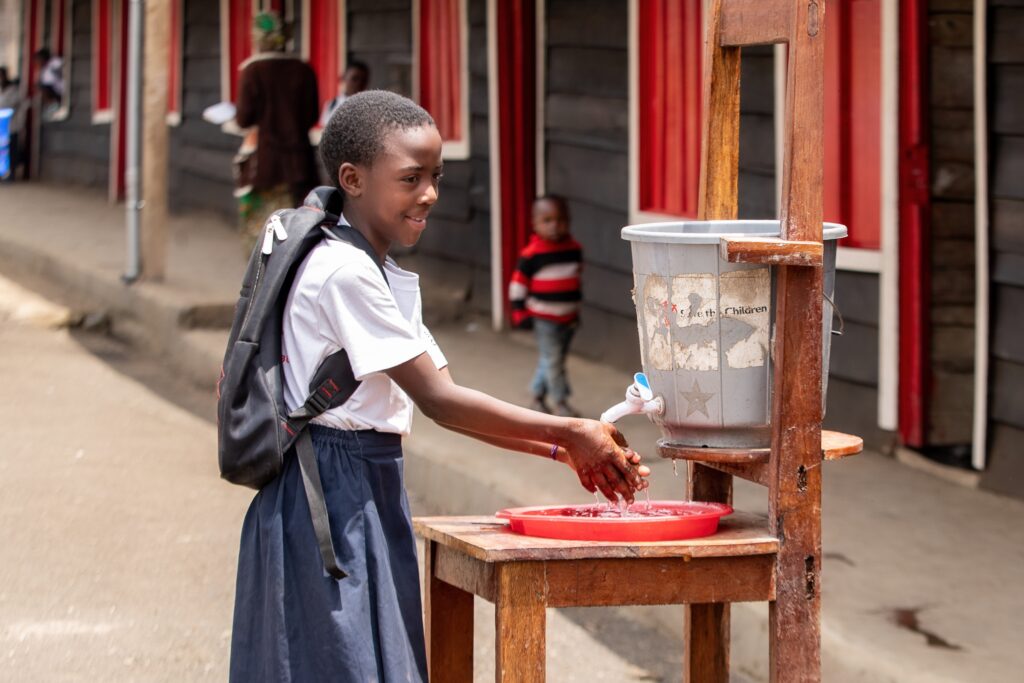
Before Save the Children was able to provide sensitivity training, teachers would physically punish children. Teachers worked with students and trainers to develop a better approach to engaging students. The communication and correction methods used now affirm and empower students to learn, instead of traumatizing and hurting them. The headmaster, the teachers and parents feel supported and now have a resource they never expected before.
Working a small business to support her family.
Marie Bahati* arrived in North Kivu as a refugee from Masisi. The mother of 12 children went to find work to be able to provide for her family. However, the family faced safety concerns while Marie was away at work, including sexual violence. Marie felt lost and did not have any support. She did not know what to do or what was best for her family. Could she return to Masisi? But returning to Masisi also meant returning to violence and conflict that would put her family in danger.
Marie met community facilitators from Save the Children’s partner organization and spoke with them about her concerns for her family’s safety. Save the Children’s partner organization referred Marie’s children to required services to support victims of violence.
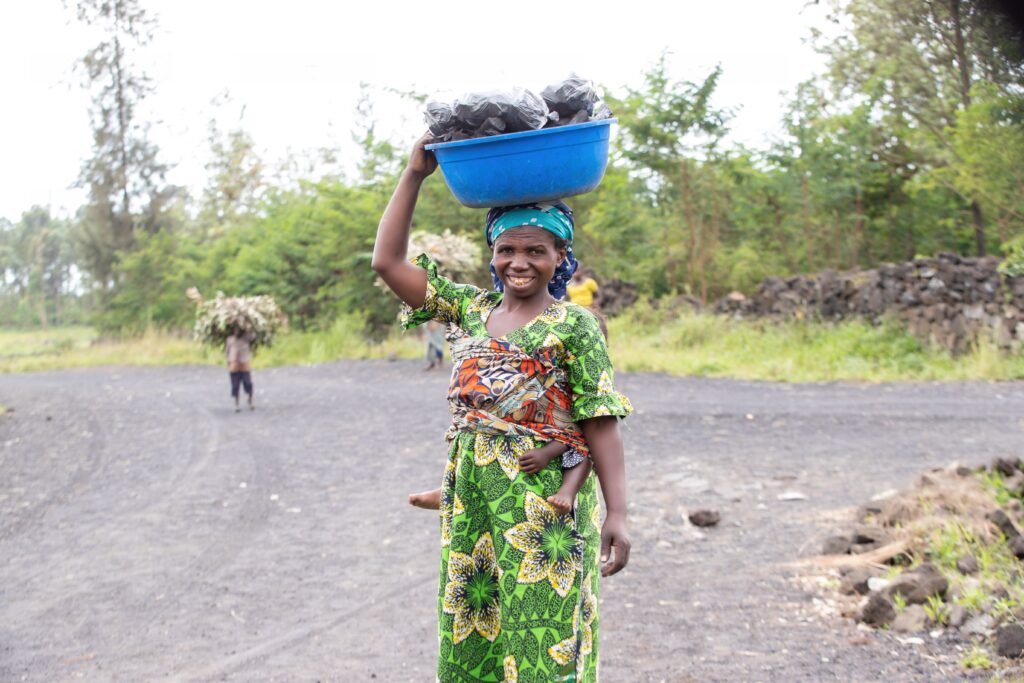
However, Marie still needed to find work to be able to support her family. In October 2022, the Ni Someshe project provided a cash transfer of USD $45, which supported Marie to start a small business trading sweet potatoes and charcoal. With the capital to start a business, Marie could provide food for her family and buy soap to clean her children’s school uniforms. While working, Marie found that she was able to gather with other women she did not know before and become a part of her new community.
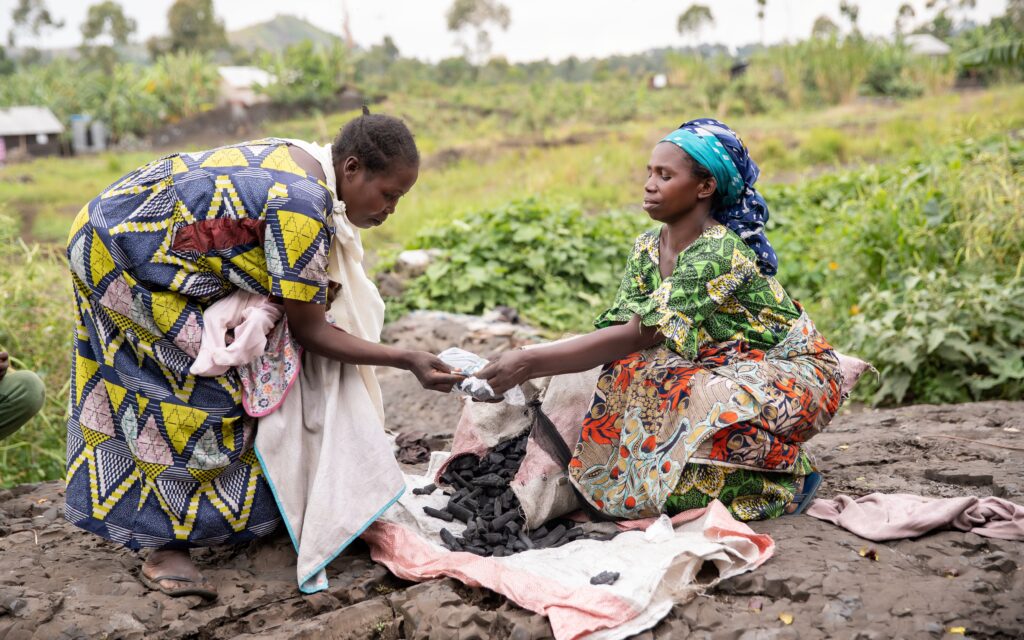
Treating boys and girls as equals.
Jeanine* is a 27-year-old mother of five children living in South Kivu. Of her children, three are girls and two are boys. As she was taught growing up, Jeanine would underestimate the abilities of her female children. “There is an unfair expectation toward women to do all the work in the home while boys can be unemployed,” Janine says.

Through engagement with the Ni Someshe! Project, Jeanine has learned life skills to pass along to her children. She is teaching her sons how to contribute to the family home, and she has started to distribute chores and tasks equally to both her boys and girls.
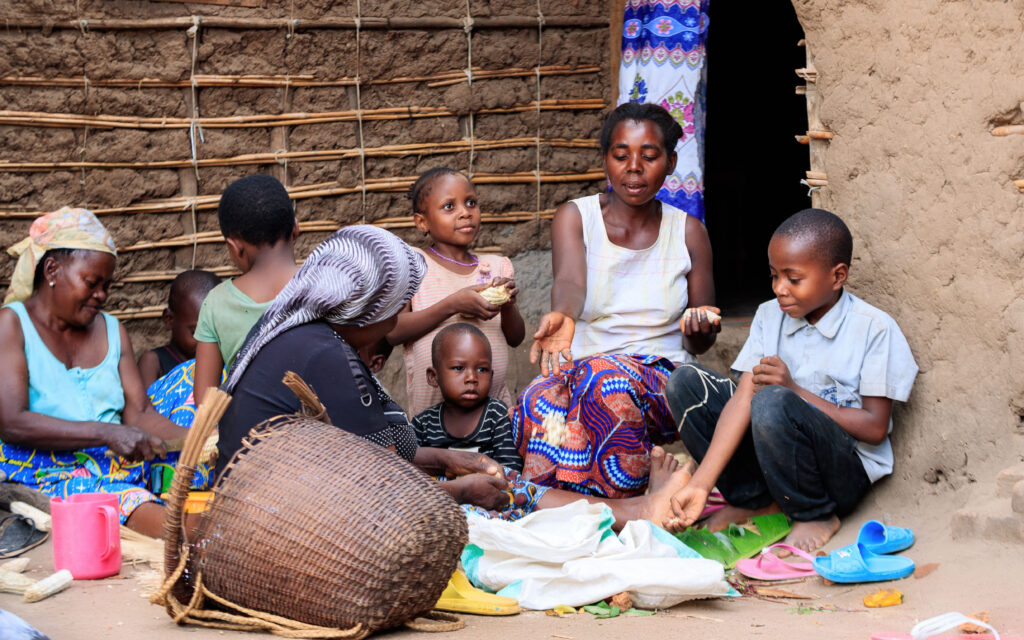
After discussions with her family, her children agreed to the change and that the chores should not be left to just the sisters. Jeanine shared that she has learned the importance of educating others on equality, and not putting her children into gender-based roles. Jeanine now works with other volunteer Gender Champions as part of the Ni Someshe! Project. She shares this knowledge with others in her community to educate and create change in her village.
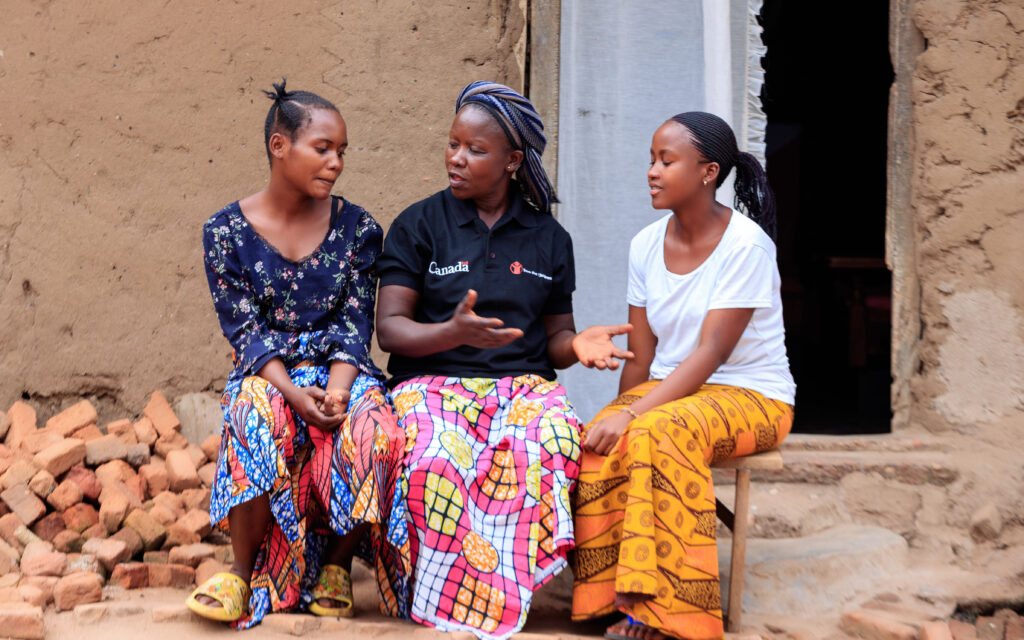
Education is for Everyone
Julienne* used to stay home or walk to work with her mother. Julienne’s mother works hard in the field for their family -if she finds some potatoes in the field while she works, that will be their dinner. For Julienne and her family, attending school was not something they could afford. Julienne also has two younger sisters who are not able to study.
One day, a Save the Children staff member passed through the village, registering out-of-school children for school. Julienne’s mother registered her and her younger sister. When Julienne started school, she did not have a uniform or school supplies.
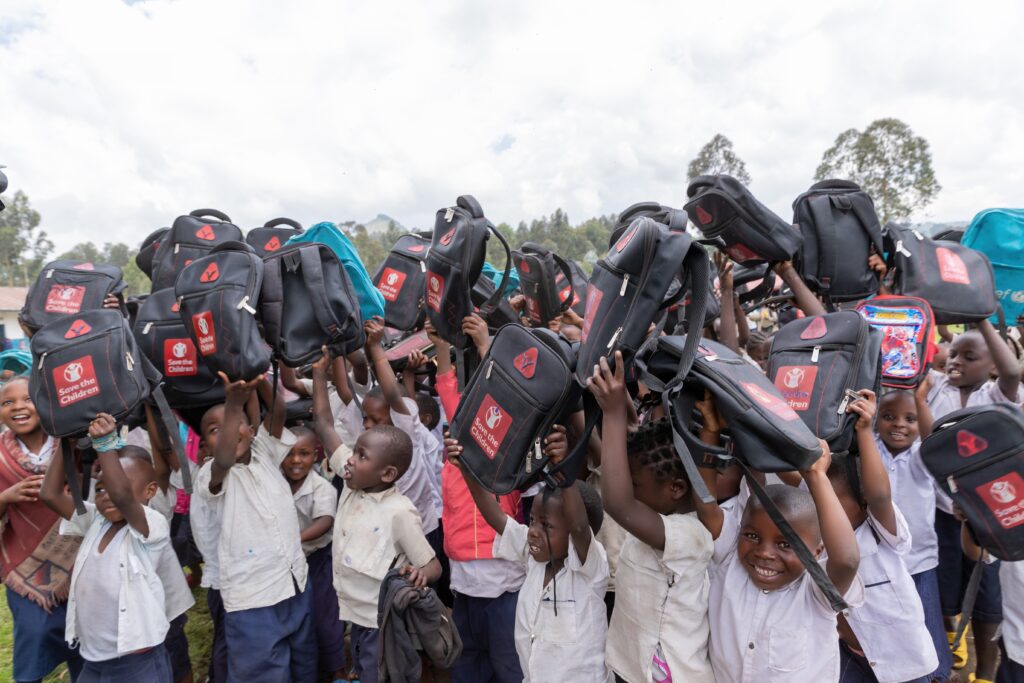
Through Ni Someshe!, Julienne and her sister were also able to get notebooks, a pen and backpacks to protect their notebooks from the rain. Julienne is delighted to have a separate notebook for each subject and can easily organize her lessons for math, history and French.
Save the Children has worked in the DRC since 1994 to meet humanitarian needs linked to the massive displacement of populations due to armed conflict in eastern provinces, especially in North Kivu, South Kivu and Ituri and Kasai-Oriental and Lomami in the centre of the country. Save the Children is developing activities in the health and nutrition, education, and protection sectors so that no community, including the most vulnerable children, is left behind and is dedicated to improving the rights to education for girls and child survivors of sexual violence.
Through the Ni Someshe project, 300 families have received financial assistance of $45. This money was used to buy school supplies, shoes and school uniforms. According to the latest statistics, 600 children have returned to school with the support of this project.
*Names have been changed to protect identities


